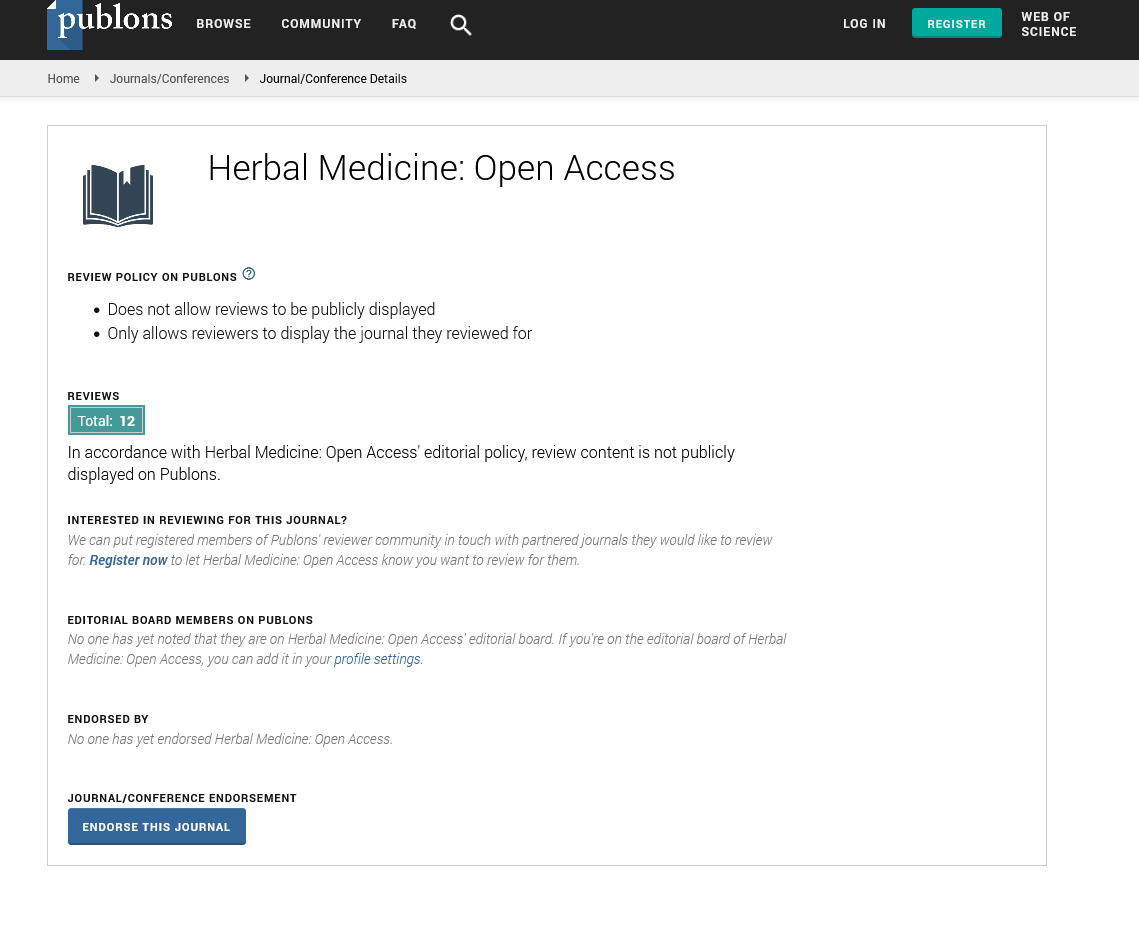ISSN : 2472-0151
Herbal Medicine: Open Access
Electroacupuncture maintains the survival and synaptic connection of neural stem cell-derived neurons in a grafted neural network scaffold via enhancing neurotrophin-3 secretion, and improves neural transduction in the transected rat spinal cord
9th International Conference on Acupuncture & Chinese Medicine
August 20-21, 2018 Dublin, Ireland
Ying Ding, Hui Jin and Yuan-Shan Zeng
Sun Yat-sen University, China
Posters & Accepted Abstracts: Herb Med
DOI: 10.21767/2472-0151-C1-003
Abstract
The unfavorable microenvironment of the injured spinal cord results in the low cell survival rate and astrocytic differentiation of the grafted neural stem cells (NSCs). Our previous study found that electroacupuncture (EA) on the governor vessel acupoints enhanced neurotrophin-3 (NT-3) level in the injury/graft site of spinal cord and promoted the survival and migration of NSCs grafted immediately. However, the transplanted NSCs appeared low efficiency in differentiating into neurons. The NSC derived neurons are especially needed for reconstructing circuit of the damaged spinal cord. Therefore, in the present study, first in vitro, we attempted to co-culture with NT-3 gene modified NSCs and TrkC (receptor of NT-3) gene modified NSCs in a gelatin sponge scaffold (GS) for 14 days, to establish a neural network scaffold (NN) with synaptic transmission and then, the NN was transplanted into a 2 mm wide transection gap in the T9-10 spinal cord of adult rats, to investigate whether EA application could promote the survival and function of transplanted NN by enhancing the secretion of endogenous NT-3 in the injured spinal cord. The results showed that EA treatment can increase NT-3 levels of the injured spinal cord, maintain the survival, differentiation and synaptic connections of the NSC derived neurons in the grafted NN, and encourage axonal regeneration in the injury/graft site of spinal cord, as well as improve neural transduction of spinal cord and paralysis hindlimb function. Our data suggest that the combinational strategy of EA and grafted NN can partially improve the structure and function of transected spinal cord.
Biography
Ying Ding is an Associate Professor, Master’s Supervisor in the Department of Histology and Embryology from Zhongshan School of Medicine at Sun Yat-sen University. She is a Member of Guangdong Provincial Anatomical Society Council; Guangdong Provincial Rehabilitation Medicine Association and Guangdong Provincial Experimental Medicine Professional Committee of Chinese and Western Medicine Association. Her research mainly focuses on the mechanism of electroacupuncture combined with transplanted stem cell repairing spinal cord injury. So far, she has obtained some grants from National Natural Science Foundation and the Natural Science Foundation of Guangdong Province. She has totally published 23 SCI-E papers.
E-mail: dingying@mail.sysu.edu.cn
Google Scholar citation report
Citations : 271
Herbal Medicine: Open Access received 271 citations as per Google Scholar report
Herbal Medicine: Open Access peer review process verified at publons
Abstracted/Indexed in
- Google Scholar
- JournalTOCs
- China National Knowledge Infrastructure (CNKI)
- Directory of Research Journal Indexing (DRJI)
- WorldCat
- Publons
- Secret Search Engine Labs
- Zenodo
Open Access Journals
- Aquaculture & Veterinary Science
- Chemistry & Chemical Sciences
- Clinical Sciences
- Engineering
- General Science
- Genetics & Molecular Biology
- Health Care & Nursing
- Immunology & Microbiology
- Materials Science
- Mathematics & Physics
- Medical Sciences
- Neurology & Psychiatry
- Oncology & Cancer Science
- Pharmaceutical Sciences
